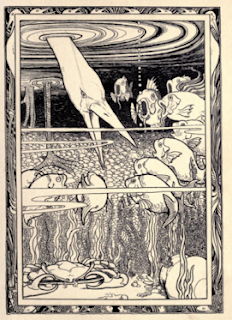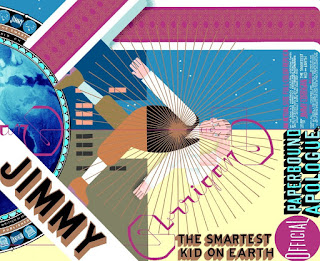Reading Notes: Week 2 Anthology
I really liked the story "The Cunning Crane and the Crab". While I expected the tale to end after the fish were eaten, giving an Aesop-like moral about trusting a self-interested predator or an enemy, the continuation of the story with the Crab -- who is the fulfillment of this previous, potential moral -- is much more satisfying, as the Crab outwits the 'cunning' Crane, giving the Crane the penalty he deserves for his lies to and murder of the fish. This inversion of the expected tropes and ending of a moralistic fable is something I would like to imitate in my writing; I hope that when I write stories, the reader is surprised, at least a little bit, by where the story ends up -- a predictable ending is usually not a marker of a good, well-told story. This is shown through the ending of "The Cunning Crane and the Crab," as I expected the Crab to spare the Crane's life, so as to impart another moral about mercy in the face of a situation that does not deserve it -- a 'turn the other cheek' sort of moral -- but instead the Jataka provides an ending which emphasizes a karmic balance, an 'eye for an eye' philosophy. Here, eastern religious views (whether they actually impacted this story directly or not) run up against western religious expectations, and I can start to expand my worldview beyond the commercialized Christianity and the easily packaged Christian morals of America. Thus, "The Cunning Crane and the Crab" is a how-to guide for me on how to subvert not only traditional plot devices and narrative expectations, but also the hegemonic ideology, ingrained in much American literature, which plagues Americans (myself included) in the form of black-and-white Christian moralism and supposed ideological superiority to the rest of the world, and especially to the East.
Bibliography: "The Cunning Crane and the Crab," The Giant Crab, and Other Tales from Old India by W. H. D. Rouse. Source.


Comments
Post a Comment